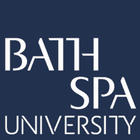About Bsc (hons) Environmental Science in Bath Spa University
Climate change, pollution, loss of biodiversity, environmental mismanagement, energy use, waste management, sustainability, and protection of natural systems are among the planet’s most pressing problems.
We’ll help you understand these issues and develop the skills to do something about them. Expect to ‘get your hands dirty’. We get you out of the classroom and into the environment as much as possible, so that you’ll develop the practical skills that employers look for.
This course will give you knowledge of Environmental Science from biological and geographical perspectives. You can design a programme of study to suit your interests and career aspirations.
You have the option to specialise in such areas as aquatic environments, environmental protection and conservation, science communication, and earth systems. Optional topics include marine biology, climatology, sustainable development, river and coastal management, environmental hazards, environmental consultancy, and biodiversity assessment.
You can pick which of these topics you’ll study, alongside core topics such as ecology, environmental management and sustainability.
Work placements, industry links and internships
Short-term work experience is available in the Second Year optional Work Placement module. A year-long placement in professional practice is available within our sandwich degree. Our students have worked with organisations such as Somerset Earth Science Centre, Ecosulis ecological consultancy, county Wildlife Trusts, and Mankwe Wildlife Reserve in South Africa.
Careers
Students have gone into roles including: Assistant Ecological Consultant; Land Management and Conservation Adviser; Policy Adviser at Defra; and Waste Awareness Officer. Example employers include:
- Wiltshire Wildlife Trust
- Bath and North East Somerset Council
- Ecosulis ecological consultancy
- Soil Association
- The Environment Agency
- Natural England
- Ministry of Defence
- Office for National Statistics
- Natural Environment Research Council [NERC]
Many graduates have gone on to postgraduate programmes, leading to a teaching qualification (PGCE), MSc or PhD.
Academic qualification equivalents
- Higher Secondary School Certificate/Indian School Certificate (standard XII) from the following boards CBSE/CISCE/WBCHSEB, with 65%, including grade C in at least five subjects.
English language requirements (one of the below):
- IELTS:Academic 6.0 overall This must include a minimum of 5.5 in Listening, Speaking, Reading and Writing.
- TOEFL iBT: A total of 72, to include a minimum 18 in Reading, 17 in Listening, 20 in Speaking, and 17 in Writing.
- PTE: This must include a minimum of 51 in Listening, Speaking, Reading and Writing.
Bath Spa University Highlights
| Type |
Public |
| Campus Setting |
Urban |
| Tuition Fees for International Students (full-time degrees in 2020-2021) |
13,700 GBP - 15,300 GBP (varies with the courses) |
| Campus Housing Capacity |
25% |
| Student Retention Rate |
89% |
| Scholarship Availability |
Yes |
| Applications Accepted |
Online |
| Work-Study |
Available |
| Intake Type |
Yearly |
| Mode of Program |
Full time and part-time |
Bath Spa University Average Tuition Fees And Other Expenses
International students joining the Bath Spa University are required to pay 70% of the tuition fees on or before arrival and commencement of the course. All payments should be made in £ sterling and the easiest way to make a payment is via Flywire. However, the payment can also be made through credit/debit card.
International students should open a UK bank account as soon as possible after arrival.
The estimated cost of attendance depends on several factors like the program applied for, tuition, books, fees, housing, dining, and personal items.
| Expenses In GBP |
Undergraduate (per annum) |
Graduate (per annum) |
| Tuition Fee for International Students (full-time courses) |
13,700- 15,300 (varies with the field of study chosen) |
13,700- 15,300 (varies with the field of study chosen) |
| Career and Professional Development Fees |
145 |
145 |
| Housing and Rooms |
8,412 |
8,412 |
| Health Insurance |
150 |
150 |
| Books and Supplies |
500 |
500 |
| Meals |
3,225 |
3,225 |
| Personal Expenses |
792 |
792 |
